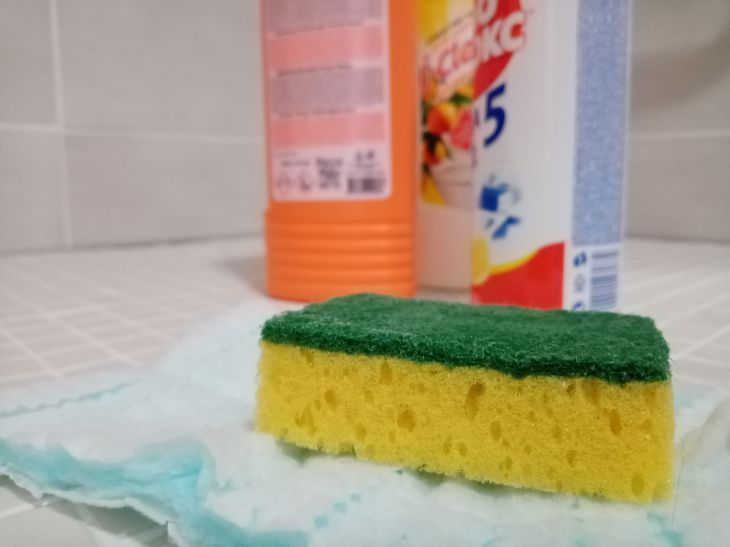For those who are used to washing dishes with a sponge, experts strongly recommend not to do so anymore.
Why? Because such sponges can be home to harmful microbes.
Even if your plates and pots appear clean, bacteria, including salmonella, may still be present on their surfaces.

Danger
Experts say the problem with the sponge is that it almost never dries out completely, especially if used on a regular basis.
Moisture is an ideal environment for bacteria to thrive, including those that can pose a health risk.
Scientists have said that one sponge can contain more bacteria than there are people on Earth.
In addition to moisture, food remains often accumulate on the sponge, which evil microbes enjoy feasting on. They feast and multiply.
Even constantly washing your sponge will not save you from the risk of spreading bacteria.
Experts say that the only way to achieve absolute hygiene is to replace the sponge every day.
But there is a downside here too: this option will hit your wallet hard and is harmful to the environment.
What is the alternative?
Experts advise replacing the sponge with a brush, which, thanks to its hard bristles, can remove even the most stubborn food residue.
The main advantage of this tool is that it dries quickly, preventing bacteria from multiplying.
And thanks to the presence of a handle, contact of hands with germs is minimized.
This gives the brush the status of a more hygienic dishwashing product than a sponge.
Since the brush dries quickly, bacteria die quickly, which is another argument in favor of using this tool.
